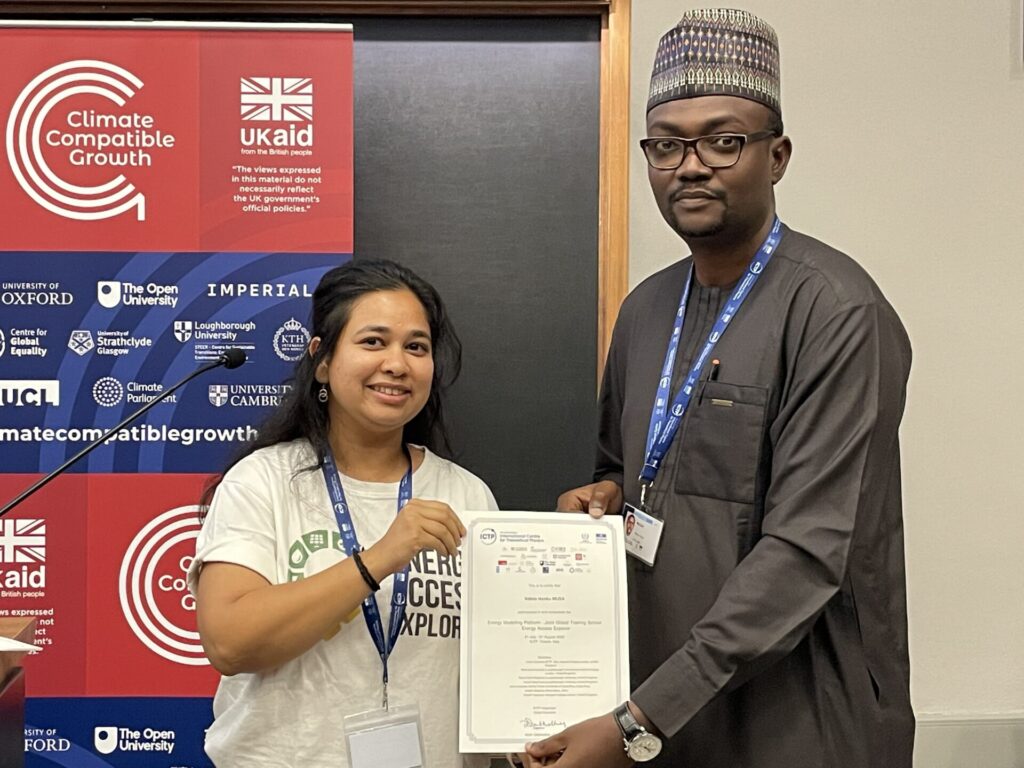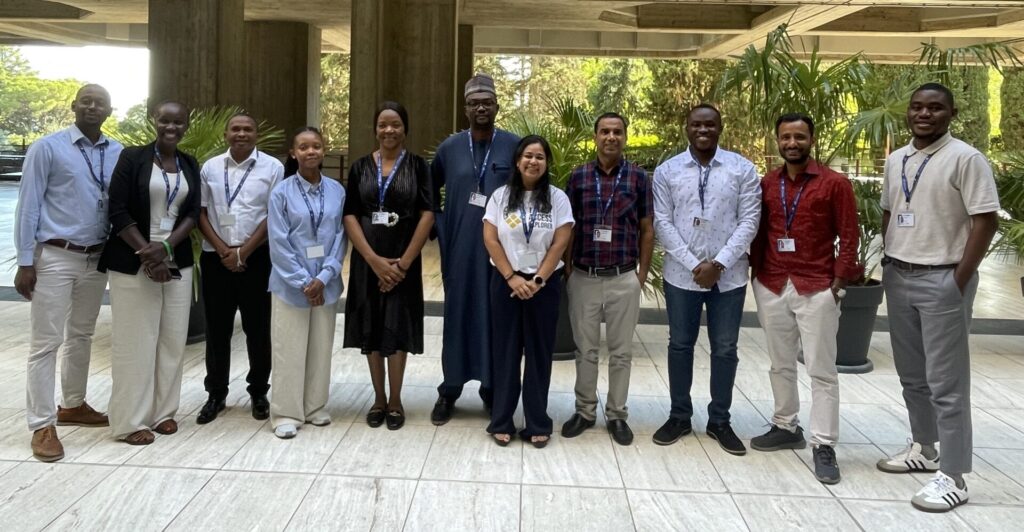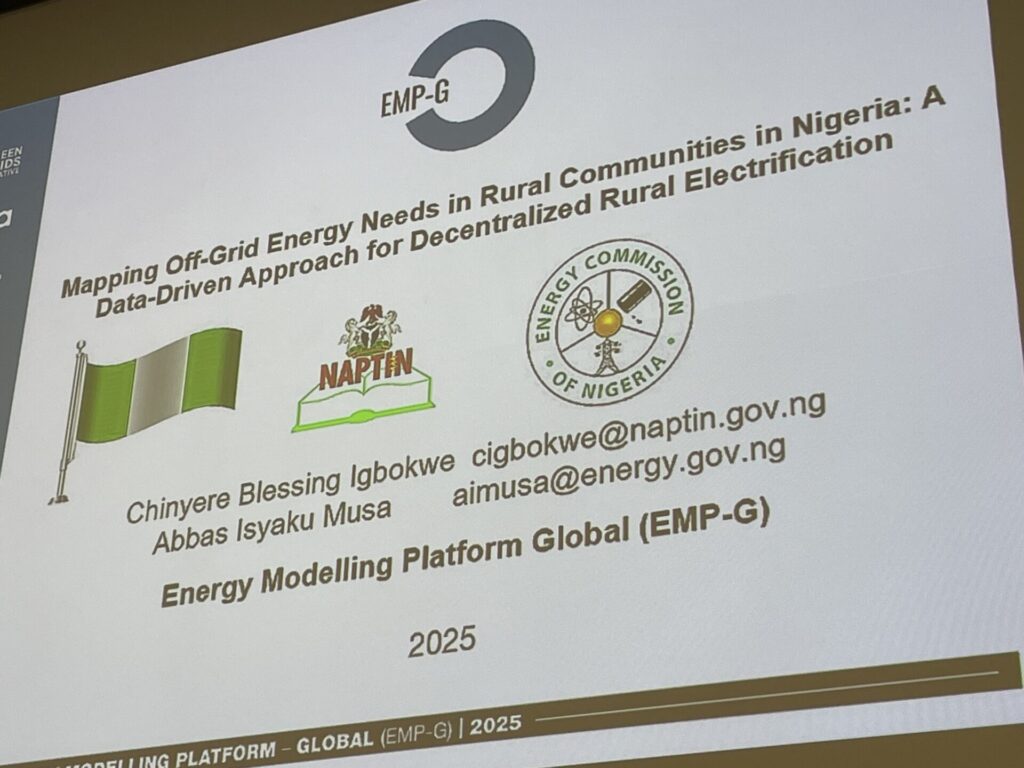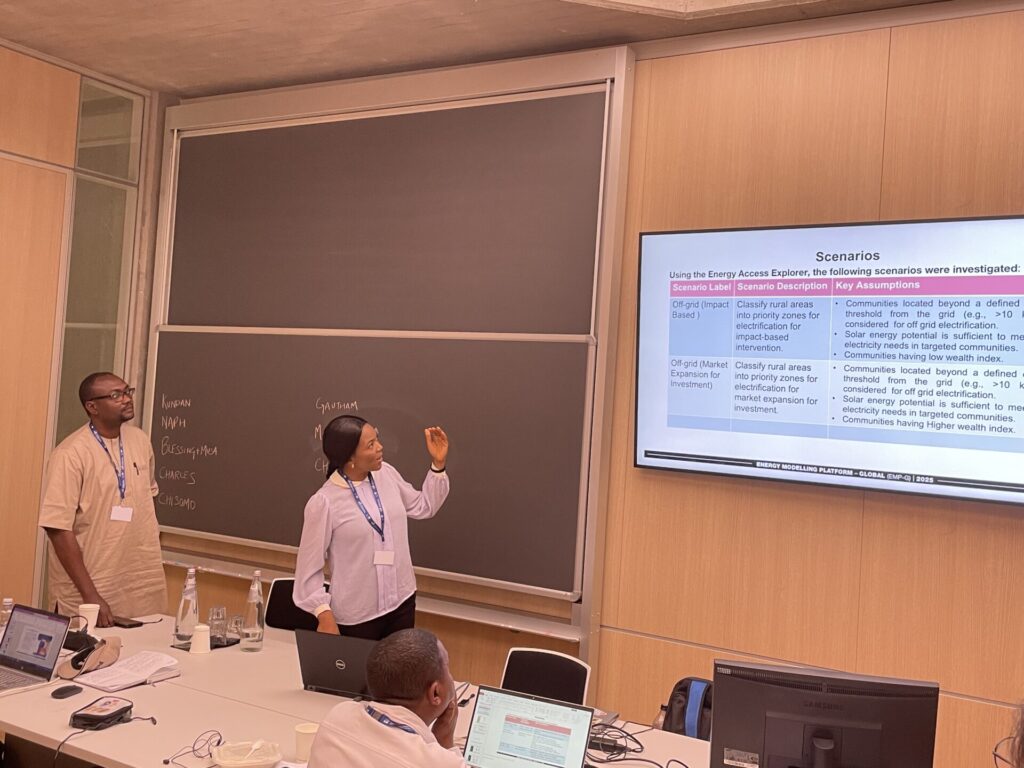
Abbas Musa took part in the recent EMP-Global at ICTP in Trieste where he worked on the project: “Mapping Off-Grid Energy Needs in Rural Communities in Nigeria: A Data-Driven Approach for Decentralized Rural Electrification” with fellow participant, Chinyere Blessing Igbokwe. Here, Abbas talks about his experience of energy modelling and his hopes for a more data-informed future for Nigeria’s energy planning.
Abbas works for the Energy Commission of Nigeria and talks to CCG’s Peter Allen about the progress made and the challenges still to overcome.
I am the Chief Scientific Officer at the Energy Commission of Nigeria, which is in charge of making strategic plans, coordinating energy policies and monitoring them in the country. I applied for the EMP-G programme and when I was given an opportunity, my organization granted me approval to attend. Some of my colleagues have attended EMPs before, particularly the one in Ethiopia last year. Our team are enthusiastic about the role of energy modelling tools to support our work. We regularly carry out strategic plans, so we need to model the policies. We used to use the MAED and MESSAGE tools that were taught to us through IAEA, but with Energy Access Explorer (EAE), I think we have more options.
Energy Access Explorer is quite “straight to the point”. It’s not like MESSAGE where you need to have the energy balance and all those sorts of things. With EAE, if you have your data inputted into the tool, you get straight to what you need to do with it. Taking your locations, if you insert population density with the relative wealth index, you can pinpoint where for example, donor agencies should focus their attention most productively. Data can sometimes be a struggle, of course, but we use data sets that are generally available, because local data is difficult to get. In Nigeria, we’re trying to see how we can come up with the primary data as unfortunately, getting it is a little bit too expensive for us and we would need additional funds for that.
Last year we did a project for households. Through the European Union, we got a little funding. So, between the Energy Commission of Nigeria and National Bureau of Statistics, we did some surveys for household energy consumption. This year, we were looking at the industry sector. So at least with time, we should be able to get more local primary data.
If money were no object, we would get more primary data for the sectors we need to model and analyse so that we could better reflect the needs of the whole country. That is our biggest challenge, and it seriously affects our ability to produce credible scenarios. Last year, when we did the households project, it wasn’t comprehensive as we have six geopolitical zones in Nigeria so we could only take a sample. If we didn’t have any funding issues, I think we would have done everything 100% getting accurate data for a much clearer picture.
Of course, I would like to see many more of my colleagues trained in energy modelling – across the various open-source models. Fortunately, we have EMP Nigeria coming up in October so we hope to do that programme and that will help in building capacity in our country.

Another challenge related to this is that, of course, our government has many priorities to juggle with a limited budget in a democratic society. Sometimes the country’s energy needs are not at the top of the list and certainly this lack of data doesn’t help us create a compelling argument to prioritise it.
Having said that, I believe that the government does understand that investing in electricity expansion would power many other positive changes in the country. Right now, the deployment of mini-grids is quite high priority. For example, the country is seeing how it can power schools and healthcare centres with their own grids so that is encouraging.
There are also some projects that are being co-funded by the World Bank in my country, spearheaded by the Rural Electrification Agency. And for my own organisation, Energy Commission of Nigeria, this year the President approved what we call the Renewed Hope Solarization Project in 36 states of the country. We are going to get either a federal general hospital, or a federal university, in each state, supplied with around five megawatts of power.


Apart from the electricity aspect, we have the NCCC that is in charge of climate change and from time to time we work together. We also work with academia through our research centres, one in each of the six geopolitical zones. Their research areas include energy efficiency, hydro, petroleum resources, environment, and one purely on renewables. The challenge there is to commercialize the work they do and for that, we would need more funding and support.
